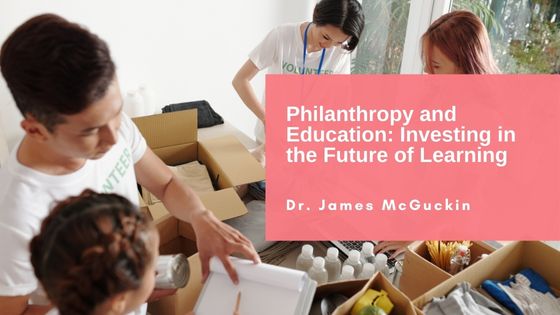Education is the cornerstone of societal progress, empowering individuals, fostering economic growth, and driving innovation. However, access to quality education remains challenging for millions worldwide, particularly those in underserved communities. Philanthropy is crucial in addressing this disparity by investing in educational initiatives that expand access, improve quality, and promote equity in learning opportunities. In this blog post, we’ll explore the transformative impact of philanthropy on education and how charitable giving shapes the future of learning.
Expanding Access to Education
One of the primary goals of philanthropy in education is to expand access to quality educational opportunities for all individuals, regardless of their socioeconomic background or geographic location. Charitable organizations and philanthropic initiatives provide scholarships, grants, and financial assistance to students from underserved communities, enabling them to pursue higher education and unlock their full potential. By removing financial barriers to education, philanthropy opens doors to new opportunities and empowers individuals to build brighter futures for themselves and their communities.
Improving Educational Quality
In addition to expanding access, philanthropy plays a crucial role in improving the quality of education by supporting innovative teaching methods, curriculum development, and teacher training programs. Charitable organizations fund research and pilot projects to identify effective educational practices and scale them up to reach more students. By investing in professional development opportunities for educators and school leaders, philanthropy helps to build a skilled and motivated workforce capable of delivering high-quality instruction and supporting student success.
Promoting Equity and Inclusion
Philanthropy in education also aims to promote equity and inclusion by addressing systemic barriers and disparities that limit educational opportunities for marginalized populations. Charitable organizations advocate for policies and initiatives that promote diversity, equity, and inclusion in education, ensuring all students have access to a quality education that meets their unique needs and strengths. By investing in programs that support students from underrepresented backgrounds, philanthropy helps to level the playing field and create a more inclusive learning environment for all.
Fostering Innovation and Entrepreneurship
Another area where philanthropy significantly impacts education is fostering innovation and entrepreneurship in the education sector. Charitable foundations and philanthropic organizations fund research, development, and pilot projects to leverage technology, data analytics, and other innovative tools to improve teaching and learning outcomes. By supporting ed-tech startups, incubators, and accelerators, philanthropy fuels innovation and drives positive change in the education landscape, paving the way for new approaches and solutions to educational challenges.
Inspiring Lifelong Learning
Beyond formal education, philanthropy also supports lifelong learning opportunities that enable individuals to acquire new skills, pursue personal interests, and adapt to a rapidly changing world. Charitable organizations fund adult education programs, vocational training initiatives, and community-based learning centers that provide individuals with the knowledge and skills they need to thrive in the 21st-century workforce. By investing in lifelong learning, philanthropy empowers individuals to continue learning and growing throughout their lives, unlocking new opportunities for personal and professional development.
Conclusion
In conclusion, philanthropy plays a vital role in shaping the future of education by expanding access, improving quality, promoting equity, fostering innovation, and inspiring lifelong learning. Through charitable giving and strategic investments, philanthropy empowers individuals, strengthens communities, and drives positive change in the education landscape. By working together to address educational challenges and opportunities, philanthropic organizations, educators, policymakers, and stakeholders can create a more equitable, inclusive, and prosperous future for all learners. As we look ahead, let us continue to invest in the future of learning and ensure that education remains a powerful force for positive social change and human development.

